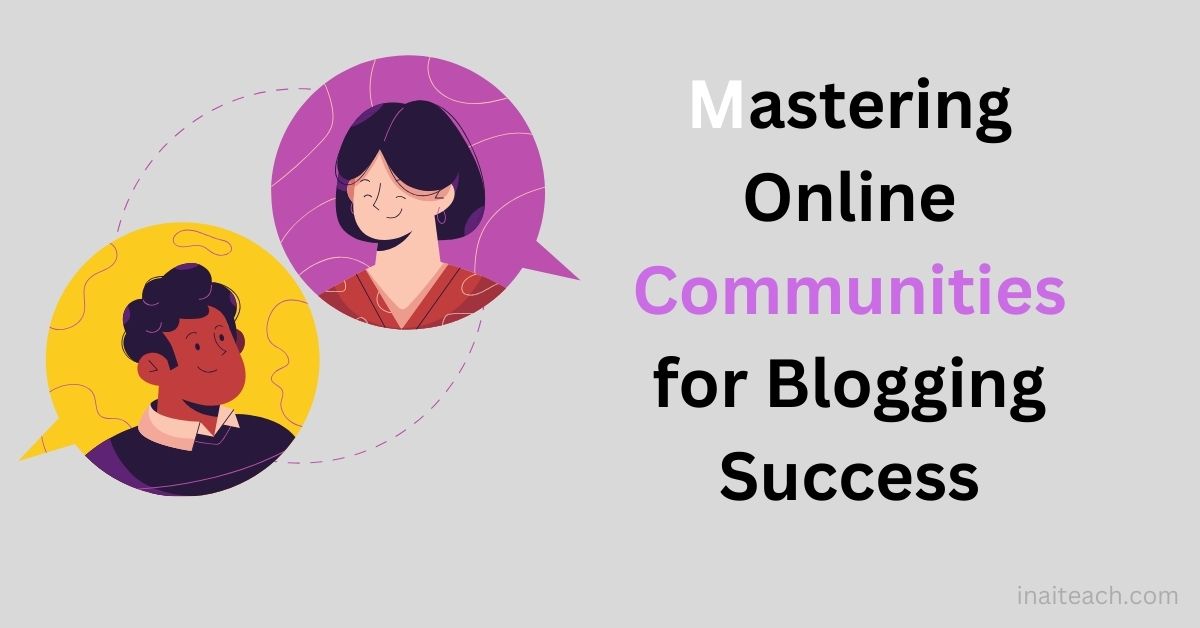
Mastering Online Communities for Blogging Success Blogging is not just about creating content; it’s about building connections. If you want your blog to succeed, joining online forums can be a game changer.Let’s dive into how to participate effectively in online communities and supercharge your blogging journey.
Mastering Online Communities for Blogging Success
What Are Online Communities and Why Do They Matter?
Online communities are digital spaces where people with shared interests interact. For bloggers, these spaces can be goldmines of opportunities to connect, learn, and grow.
Boost Your Blog with Paid Advertising: A Step-by-Step Guide
Step-by-Step Guide to Participating in Online Communities
1. Research and Identify Relevant Communities
The first step is to find the right communities. Platforms like Facebook Groups, Reddit, LinkedIn, and niche forums are great places to start. Use keywords related to your blog to search for groups or forums where your target audience hangs out.
2. Join the Right Communities
Don’t just join any community—look for ones that align with your niche. Check the group’s activity level, rules, and member engagement. Signing up is easy, but make sure to read the guidelines before participating.
3. Observe and Learn the Dynamics
Before jumping in, take some time to observe how the community functions. What are the hot topics? How do members interact? This will help you avoid rookie mistakes and blend in seamlessly.
Master the Art of Consistency and Adaptability in Blogging
4. Engage Authentically
No one likes a spammer. Instead of pushing your blog links right away, start by commenting on posts, asking questions, and sharing insights. Authentic engagement builds trust.
5. Share Your Blog Strategically
When the time feels right, share your blog posts. Ensure they add value to the discussion. For example, if someone asks for tips on a topic you’ve covered, share your link with a brief explanation.
6. Build Relationships and Network
Engage with key members and moderators. Networking within these communities can open doors to guest posting opportunities, collaborations, and much more.
How to Optimize Your Website for Search Engines (SEO)
How Online Communities Boost Blogging Success
1. Drive Targeted Traffic
Engaging in communities gives you access to an audience that’s already interested in your niche. This can translate to higher blog traffic.
2. Receive Constructive Feedback
Communities can be great places to test ideas and get feedback on your blog content.
3. Sharpen Your Skills
Interacting with experts and peers in your field can help you improve your blogging game.
Overcoming Challenges in Online Communities
1. Initial Hesitation
Feeling shy? Start small by liking posts and gradually move to commenting.
2. Negative Feedback
Not all feedback will be positive. Use criticism to improve, and ignore outright negativity.
3. Time Management
Set aside specific times for community engagement to avoid distractions.
Pro Tips for Maximum Impact
- Consistency is Key: Regular participation keeps you visible.
- Track Your Efforts: Use tools like Google Analytics to measure the traffic coming from these communities.
- Stay Updated: Communities evolve—keep an eye on trends to stay relevant.
Conclusion
Engaging in online communities isn’t just an add-on—it’s a core strategy for blogging success. By participating authentically, you can drive traffic, improve your skills, and build lasting connections. So why wait? Start exploring and make your blog shine!
FAQs
1. What are the best platforms for bloggers to find communities?
Platforms like Facebook Groups, Reddit, LinkedIn, and niche-specific forums are ideal for finding blogging communities.
2. How can I promote my blog without spamming?
Engage first, share later. Always ensure your blog links add value to the discussion.
3. Can beginners benefit from online communities?
Absolutely! Communities are excellent for learning and networking, regardless of experience level.
4. How much time should I spend in these communities?
Start with 15–30 minutes a day and adjust based on your goals.
5. What should I do if I face negative feedback?
Take constructive criticism seriously, ignore trolls, and focus on positive interactions.

